Welcome back to another DC History. In the wake of the New 52, we’re looking at the history of some of the people and groups being reintroduced to the DC Universe. Only by looking back at what came before can we understand where we’re going.
This week, we’re looking at the Booster Gold, the self-styled greatest hero you’ve never heard of.
Booster debuted in a way that hasn’t been seen in years. His first appearance was in his own title. He wasn’t the hero of some massive crossover that his solo series spun out of. He wasn’t a guest star in an adventure with the Justice League before getting his series. Booster just showed up in Booster Gold #1 fully formed. There was no preamble.
The reader learned a few things about Booster right off the bat: He was famous, he was a superhero, and he had an ego.
In those first few issues of his series, the reader was given absolutely no information as to where Booster came from. Early on, the only thing known about Booster were his powers. He could fly, shoot energy blasts, protect himself with a force field, and he had a flying computerized sidekick named Skeets. The story of where he came from and how he’d gotten so famous would come in time. A few hints were dropped. Booster was constantly misquoting American idioms though Skeets did try to cover this up whenever possible. More tellingly, Booster had a Legion Flight Ring on his finger. The obvious conclusion that many readers drew from this was the Booster was from the future and he was an ex-member of the Legion of Super-Heroes.
When Booster’s origin finally came to light, a very different explanation was given.
During an adventure with Superman, Skeets pulled Supes aside and explained where Booster had come from. As many had guessed, Booster came from the future though he had never been a Legionnaire. Booster’s real name was Michael Carter and he had been a college football star. After his parents fell into money troubles, Michael took to gambling to pay the family’s debts, including betting on college football. Eventually, he started betting on his own games, which he occasionally threw in order to make his bet pay off. When this came to light, Michael was disgraced. He was kicked out of college and took any job he could get. He became a night watchman at a museum alongside Skeets, a robot who knew the history of the DCU.
Michael wanted to be good. He did. But an exhibit on 20th century American superheroes got his attention. An idea suddenly struck him: Disgraced in the present, he’d travel back to the past and be a hero. Also, he’s make a boatload of cash licensing his face and name. To these ends, he deactivated Skeets, ransacked the museum, and traveled back to the 1980s where his record was clean. Eventually, his plan would prove to be successful.
Booster made up for his questionable past by throwing himself head first into his role of superhero. That’s the thing about Booster: He may be selfish and try to make a buck where he can, but he does want to do good. For him, the two goals aren’t mutually exclusive.
After a time, Booster got the attention of the Justice League. After taking out the entire Royal Flush Gang in front of the League, Batman gave the okay to add him to the group. It was a big day for Booster.
It was with the League that Booster would find his most popular success. Years after his solo series was canceled, Booster continued to adventure with the Justice League. It was there that Booster would meet his best friend, Ted Kord, also known as Blue Beetle. “Blue and Gold” would be a pair that would get into scrapes and wacky antics when they weren’t helping save the world. Not everyone was a fan.
Eventually, Booster and Beetle’s plans blew up in their faces one too many times. After being reduced to kitchen duty when the scheme of creating an island resort known as Club JLI completely fell apart, Booster found that he couldn’t take the constant ridicule of his teammates. He quit the Justice League.
From there, Booster became a member of a new super team. Funded by every major corporation in the DCU except for Wayne Enterprises, the Conglomerate were heroes who thought they were doing good for humanity but ultimately were just looking after stock holders’ interests. The team included another ex-Justice Leaguer named Gypsy but everyone else on the team was a D-lister at best. When your super team includes Reverb, a character without his own Wikipedia entry whose only claim to fame is being Vibe’s brother, you know you’re pulling from the bottom of the barrel.
The Conglomerate fell apart shortly after their first appearance and Booster rejoined the League.
Booster hit his lowest point as a hero when Doomsday showed up. Before he killed Superman, Doomsday took out the entire Justice League single handedly. While everyone else was down or helping protect civilians, Doomsday beat on Booster. It wasn’t pretty.
With his suit damaged beyond repair, Booster was now just Michael, an ex-college football player from the future with no marketable skills. This lead to a lot of Booster hanging out with his fellow Justice Leaguers, whining about how he didn’t have superpowers any longer. Eventually, Blue Beetle would build a new suit for Booster that pretty much everyone hated.
While sporting this new armor, Booster had his arm severed and had a mechanical limb attached in its place. His arm was eventually regrown and since this was all never brought up again, I feel that we should follow suit. Forget I mentioned it.
Shortly after this armor fiasco, Booster would return to his normal costume. Just a handful of issues later, he’d be kicked out of the Justice League. The Big Seven had just returned to the League and all others were out. Booster would pop up in the occasional 80s-era Justice League revival but it wasn’t a permanent gig. He would only come back into the mainstream after having a sizable storyline in the massive 52 series.
During the events of 52, Booster would meet up with a time traveler named Rip Hunter. Together, the two of them would save the entirety of space and time after a harrowing adventure. Not a bad comeback for a hero who was mostly remembered as being a joke. But it would be that lowered perception of Booster that would fuel his next series of adventures.
Rip explained to Booster that time traveling superheroes only exist when people don’t know who they are. If someone knows your personal history, they can go back to a vulnerable time in your past and kill you. Since everyone already knows Booster’s real name and past history, they need to convince everyone that Booster is still a joke. He needs to keep promoting soda and running shoes to the public while traveling through time, setting things right. A skeptical Booster reluctantly agrees.
That’s where Booster would remain for the next several years. He’d be protecting time while keeping his joke of a public image going.
When he found himself stuck in the Flashpoint world, Booster began to lose his memories. First, he lost his memories of his time just prior to Flashpoint, but as the adventure ended, Booster seemed to lose almost everything. What remains is a bit of a mystery.
So where is Booster Gold in the New 52? He’s running the latest incarnation of the Justice League International. For some reason, the United Nations felt he was the best person to run this team. How much of his history remains intact here? It’s hard to say, but it’s clear he’s still hawked products in the past. It’s less clear if his time traveling adventures have happened or not. In either case, his chairmanship in the JLI appears to be here to stay.
Here’s hoping we get even more Booster Gold soon. While I do like the idea of a more mature, grounded Booster, I wouldn’t turn down the occasional wacky time traveling adventure.
Jeff Reid read the entirety of Extreme Justice just so he could write articles like this. He did this for you, gentle reader. Thank him by following him on Twitter.
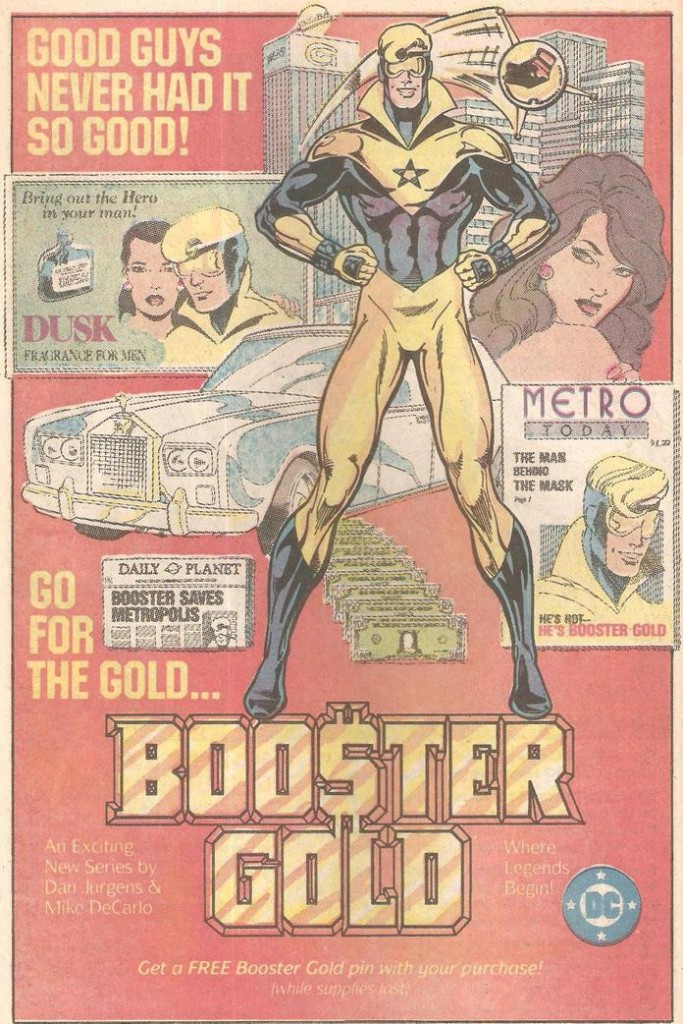
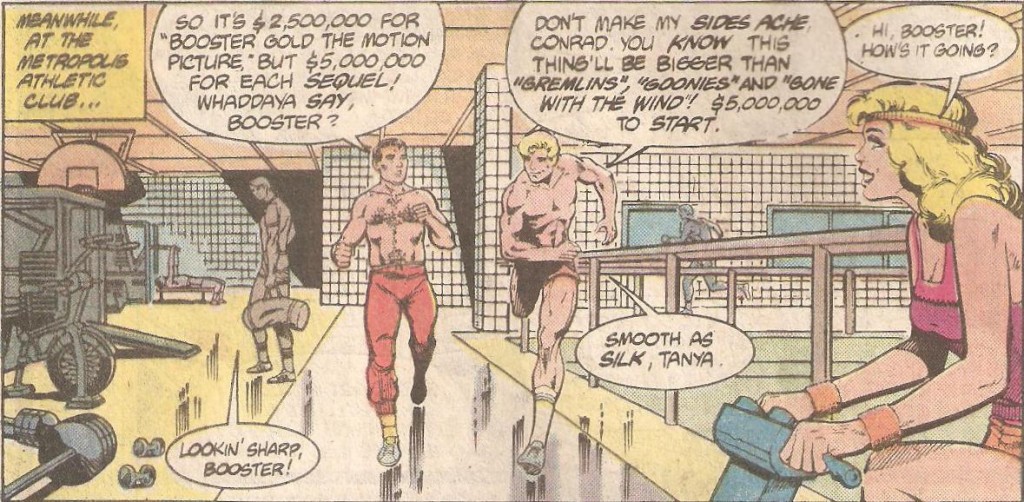
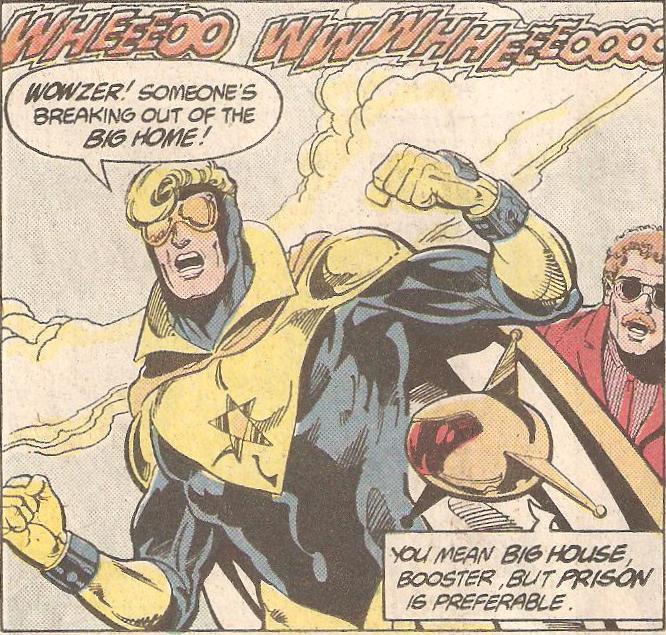
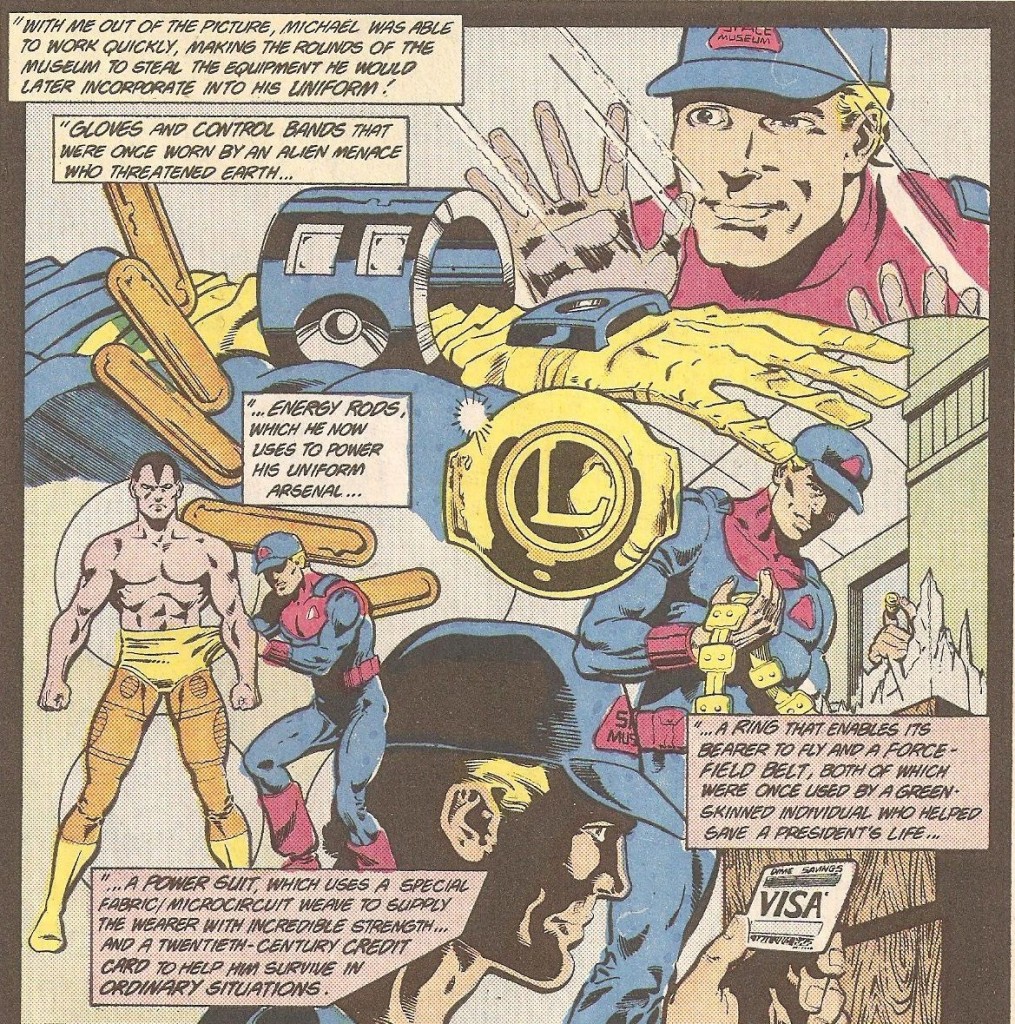


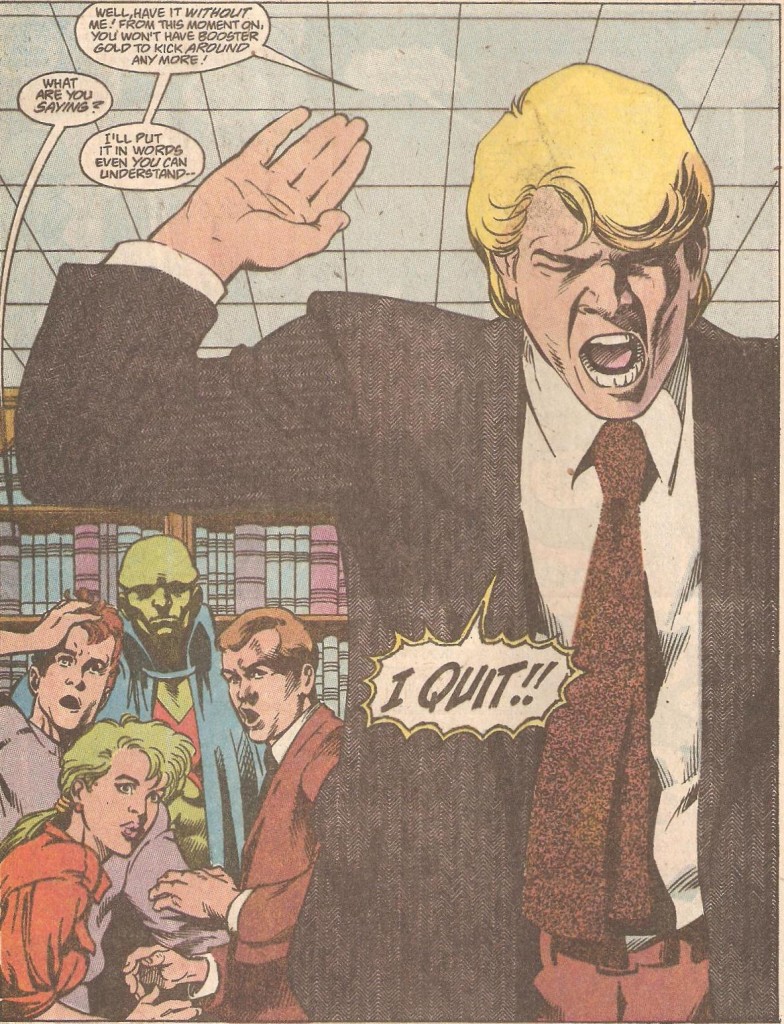
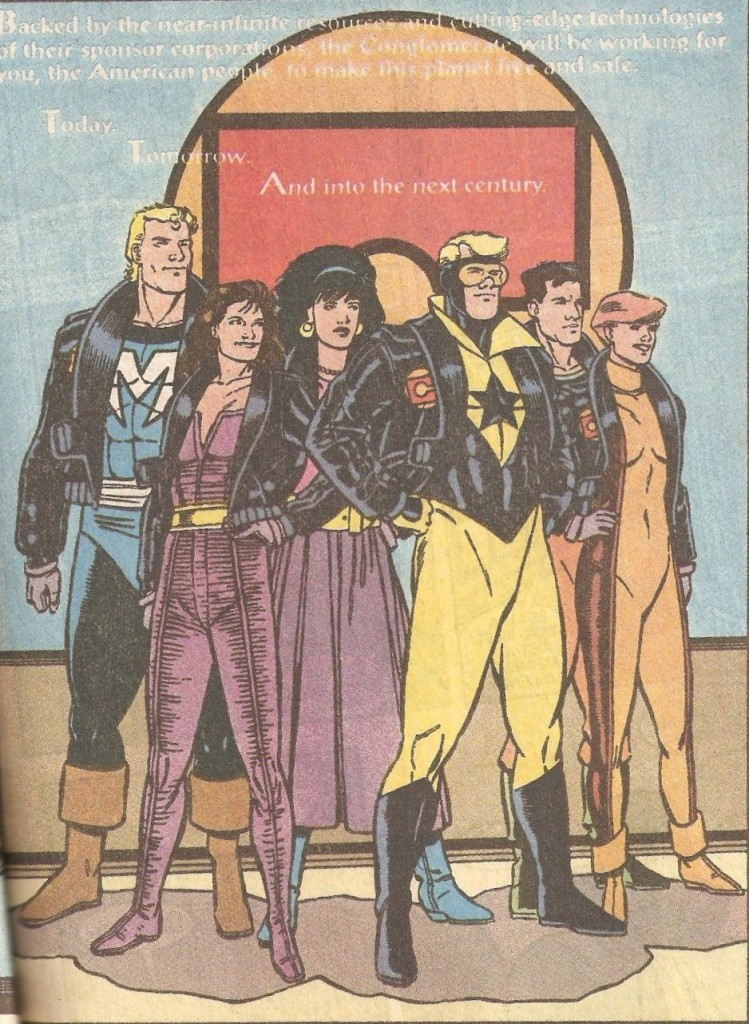
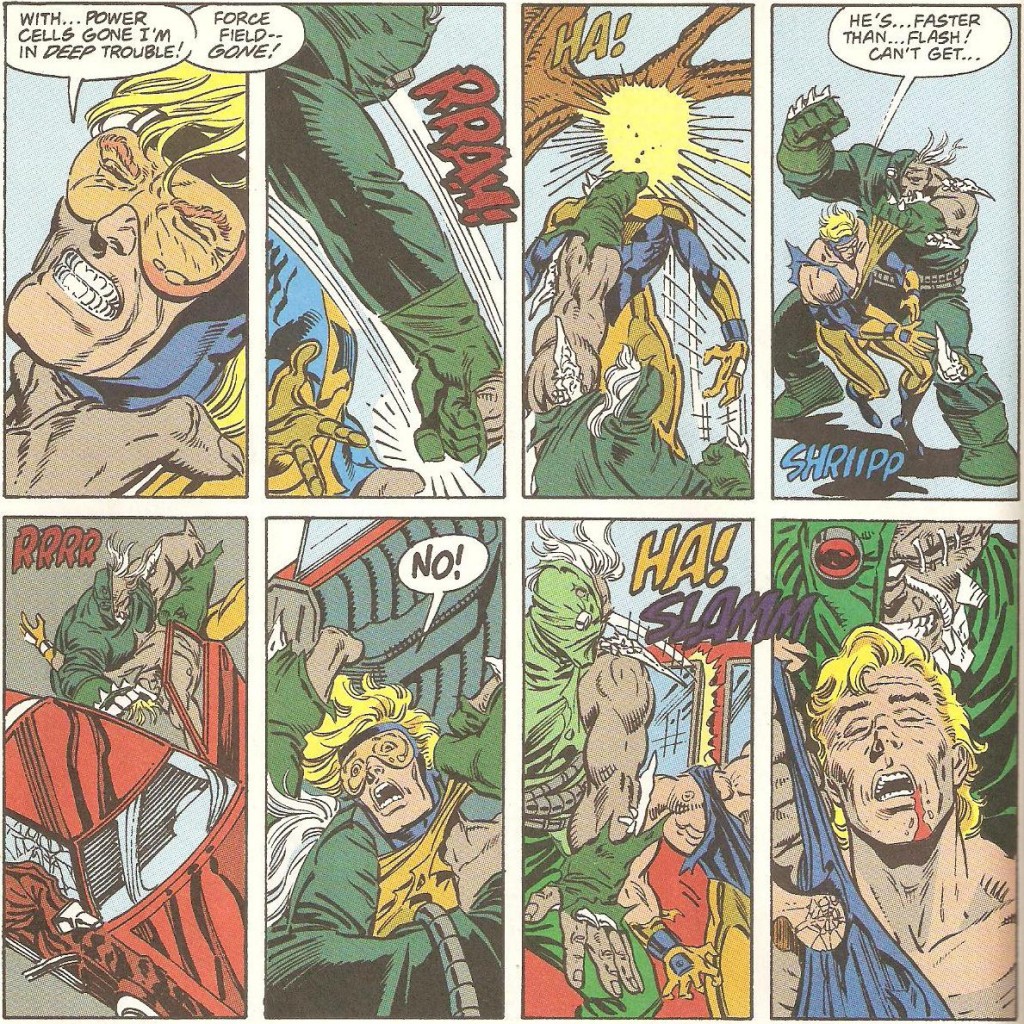
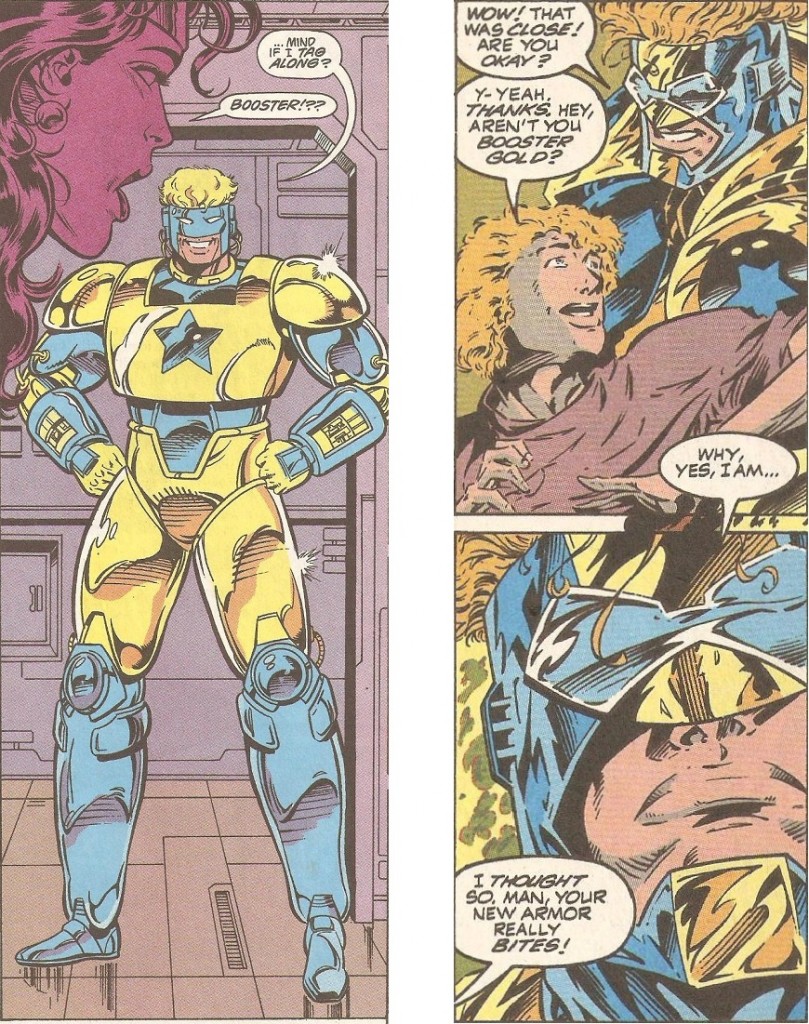
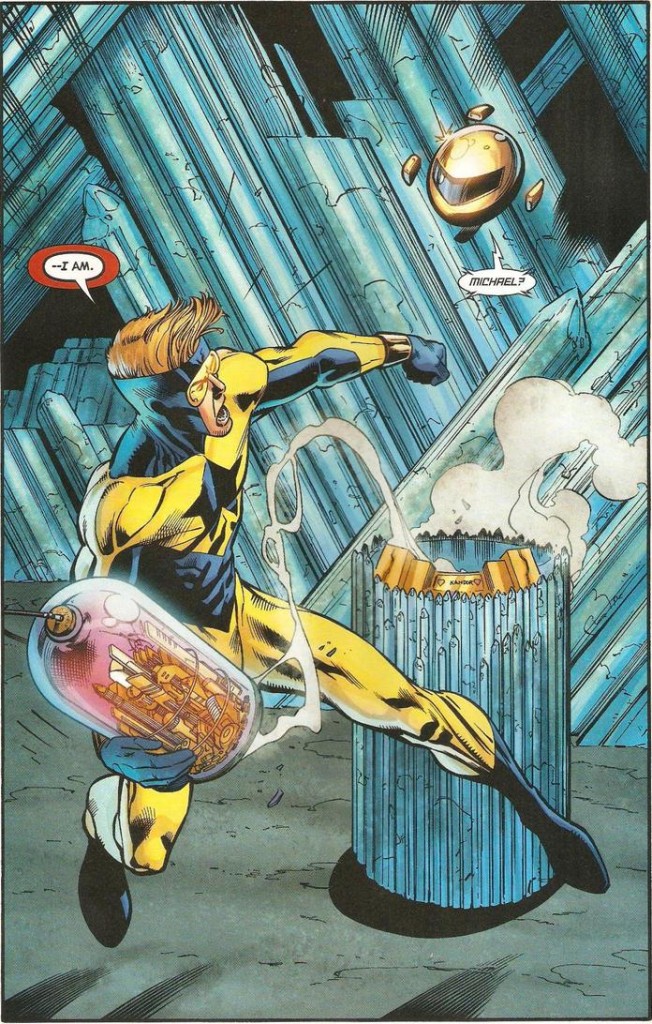
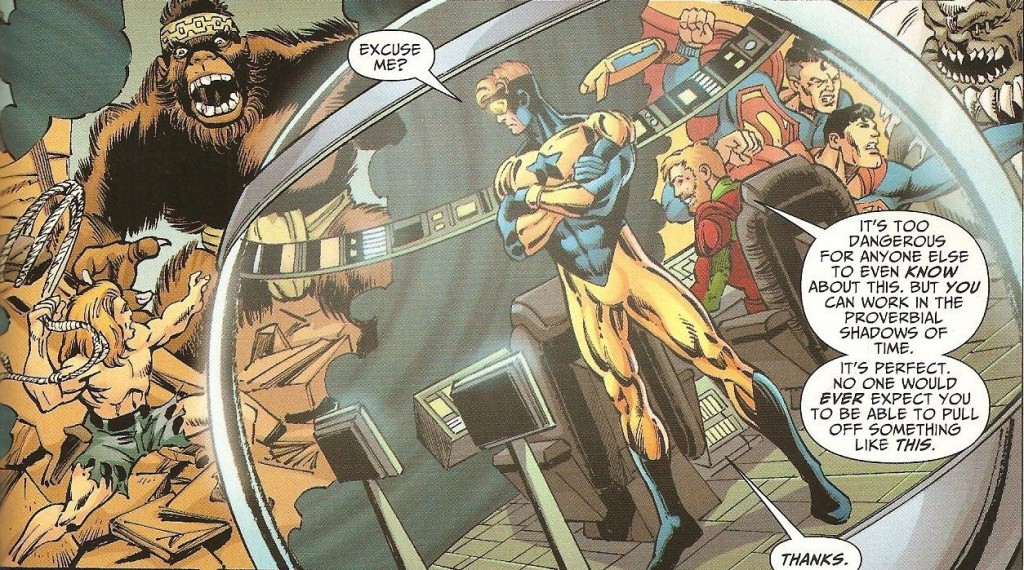
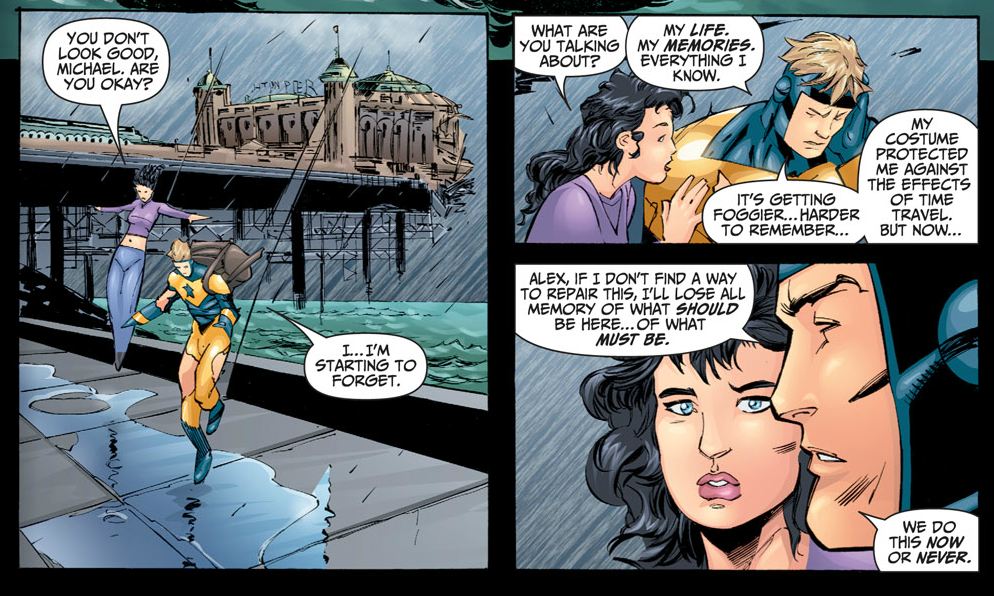
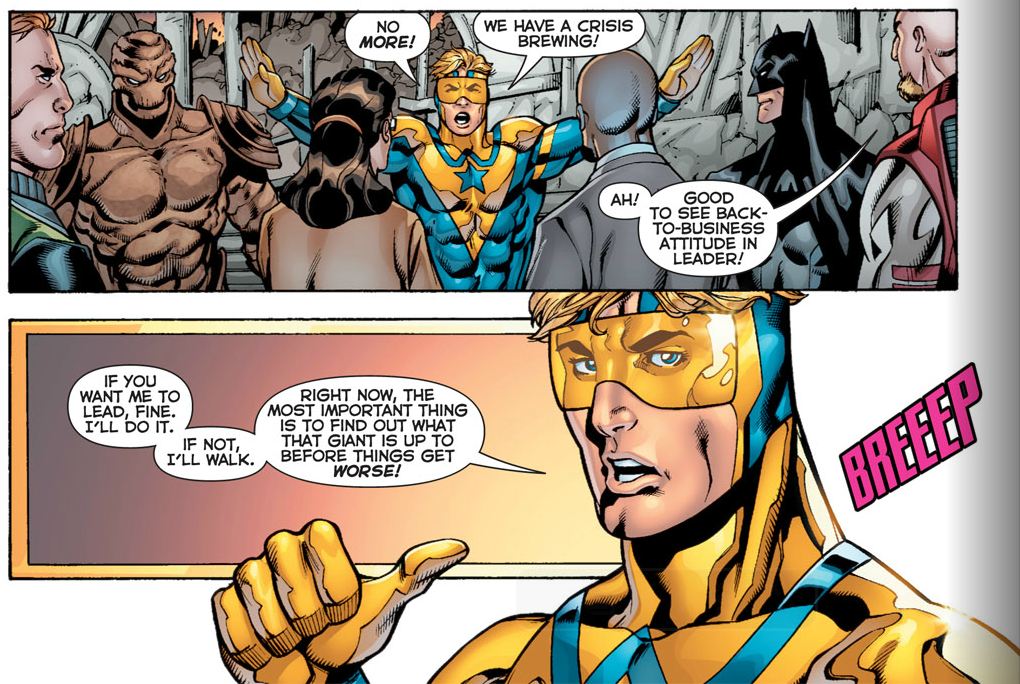


Fun Fact: Booster was the one who “named” Doomsday.
Can you guys mention the creators when you do these DC Histories? Even if it’s only one sentence. Those guys have earned it.
those first few arcs of the solo series were fantastic, never got beyond “52 pick up” and “Blue and Gold” when Ted Kord comes back for a bit
Did anyone read the rest of the series and can recommend the good arcs?
The Giffen/DeMatteis arcs towards the end were pretty awesome, before the series crashed and burned due to Flashpoint.
I’ve always had a soft spot for Booster. Granted for the most part, he’s usually there for comic relief, but I’ve always admired his charm, wit and sense of loyalty (ya know.. when he wasn’t in a self-loathing phase). The idea of a hero who became a hero for the fame is a pretty fun character device and can lead to some really interesting development.
My personal favorite story involving Booster was the 24-issue Justice League: Generation Lost series by Giffen & Winick.
Heck yeah, Booster! Thanks Jeff! Booster Gold is one of my favorites. I picked up that first issue of the Goeff Johns run on a whim and just loved it.
I really hope that in house ad at the top of the article turns out to be the poster for the future film. (That will never happen)
If they ever do make a Booster film and/or tv series, I really hope they make a bunch of faux-commercials of him promoting fake products.
I really want the time travelling Booster to return. His adventures through time with Kip and Skeets all while no one is wise to what he is doing are great. Batman’s “approval” even though he doesn’t quite know what is going on kind of bled into the New 52 with Batman being such a huge supporter of Booster leading the JLI. I just hope it isn’t too long before he gets his own comic back.
I’d like them to explain Ted Kord and Boosters relationship at some point though. Maybe Ted never was? That would be sad because Ted is one of the primary reasons Booster decides to step up and be a time travelling hero (and he also screws things up again too).
That’s why I love Booster so much. He’s a super hero how I’d expect most people to be a hero. He’s a hero that wants to turn his heroism into a means of making some cash and along the way has to live with all of the screw ups he makes while doing both.